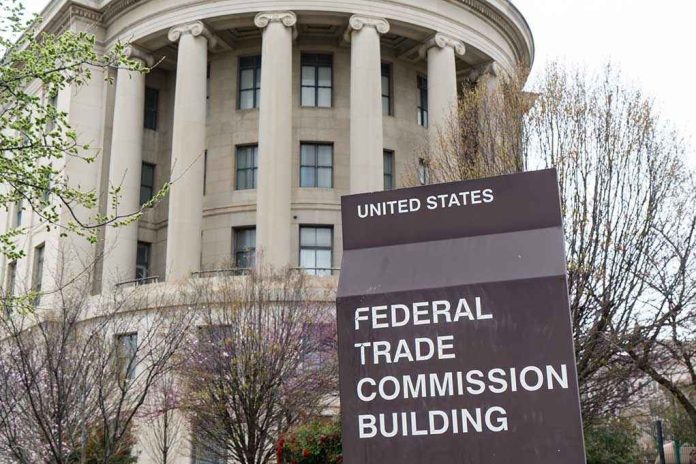
In a world where media voices are already under siege, Newsmax is taking a stand against a merger that could further silence conservative perspectives.
At a Glance
- Newsmax has filed a formal objection with the FTC against a $13.25 billion merger between Omnicom and IPG.
- The merger threatens to consolidate power in the advertising sector, potentially leading to censorship of conservative outlets.
- The FTC’s consent order aims to prevent ideological discrimination but is criticized for being too narrow.
- The outcome will shape the future of media diversity and competition in the advertising industry.
Newsmax Challenges a Media Behemoth
Newsmax Media, a prominent conservative outlet, has filed an objection with the Federal Trade Commission (FTC) against the proposed $13.25 billion merger between Omnicom Group and Interpublic Group (IPG). This merger would create the largest advertising agency in U.S. history, a move that Newsmax argues could lead to unprecedented consolidation of power in the advertising sector. Such a shift would pose a significant threat to competition and media diversity, particularly for independent and conservative media outlets. Newsmax’s CEO, Christopher Ruddy, has been vocal about the potential for ideological discrimination, asserting that the merger could marginalize dissenting voices and limit access to advertising revenue.
The FTC, aware of these concerns, issued a proposed consent order in June 2025. This order tentatively approves the merger but includes conditions aimed at preventing anticompetitive practices. Despite these measures, Newsmax and other critics argue that the order is insufficiently robust. They claim it does not adequately address the broader issues of competitive fairness and transparency, which are crucial in ensuring a diverse media landscape. The public comment period, which concluded on July 28, 2025, was an opportunity for stakeholders like Newsmax to voice their opposition and demand stronger safeguards.
The Battle for Media Diversity
The advertising industry has long been a battlefield for media diversity. Omnicom and IPG, two of the “Big Six” global advertising holding companies, have extensive influence over media buying and ad placement. This merger, if approved, would further centralize that power, raising concerns about how such a concentration could impact the media ecosystem. Past mergers in this sector have already drawn antitrust scrutiny, yet few have been blocked outright. The FTC’s recent aggressive stance against tech giants like Google indicates a heightened focus on antitrust and competition issues, but the question remains whether this will extend effectively to the advertising arena.
The stakes are high for Newsmax and similar outlets that depend on fair access to advertising markets. Without it, they risk being sidelined in favor of more ideologically aligned publishers. Such a scenario would not only stifle competition but also diminish the diversity of voices available to the public. The merged entity’s potential to dominate U.S. media buying power is a clear and present danger to anyone who values a free and pluralistic media environment.
FTC’s Role and the Path Forward
The FTC’s role as a regulatory body is to balance industry consolidation with public interest, a task that becomes increasingly complex in a rapidly evolving media landscape. While the consent order addresses some concerns, it fails to tackle the root causes of exclusionary practices in ad tech. Critics argue that the FTC’s focus on preventing viewpoint discrimination is more symbolic than substantive, given the ongoing ability of agencies to coordinate internally. The public comment period has brought these issues to the forefront, highlighting the need for more comprehensive regulatory remedies.
As the process moves forward, the FTC must consider the broader implications of this merger on media diversity and competition. The potential for legal challenges or further regulatory action looms, contingent on how well the consent order’s conditions are enforced. The final decision will have lasting effects on the advertising industry and the media outlets that rely on it for survival.
Implications for the Media Landscape
Should the merger proceed, it would likely reshape the U.S. advertising landscape, concentrating power and potentially marginalizing independent and ideologically diverse publishers. This could accelerate the trend of consolidation in the advertising sector, influencing how agencies approach “brand safety” and exclusion lists. For advertisers and consumers, the impact would be a narrower range of media voices, ultimately reducing the diversity of perspectives in public discourse.
Newsmax’s objection is not just about protecting its own interests but also about safeguarding the broader principles of competition and free expression. The outcome of this merger will set a precedent for how similar cases are handled in the future, particularly regarding issues of viewpoint discrimination and media access. As the FTC reviews public comments and finalizes its decision, the eyes of the media world are watching closely, aware that the stakes could not be higher.





